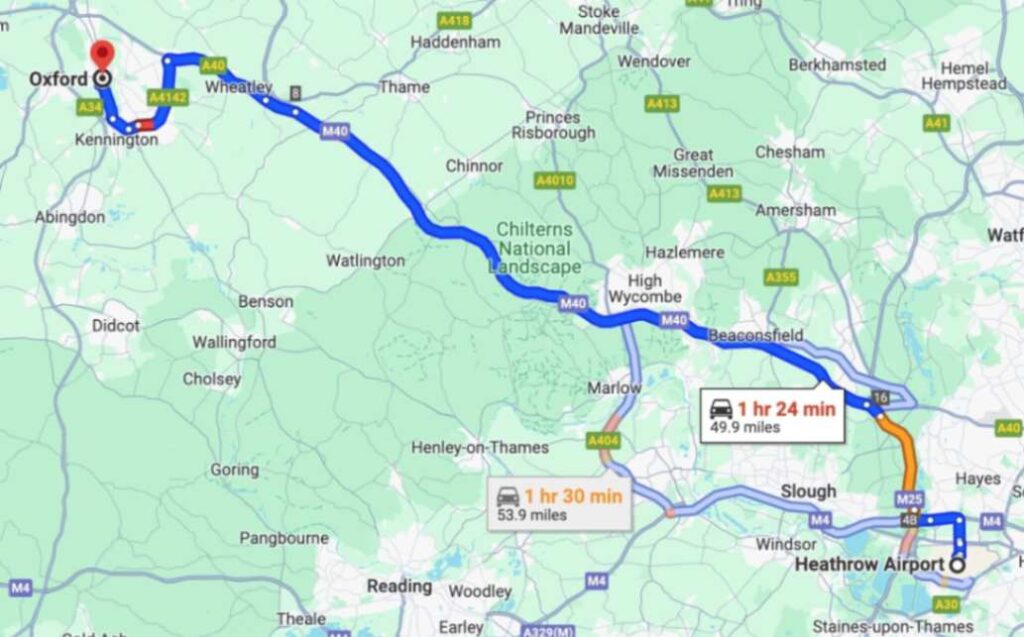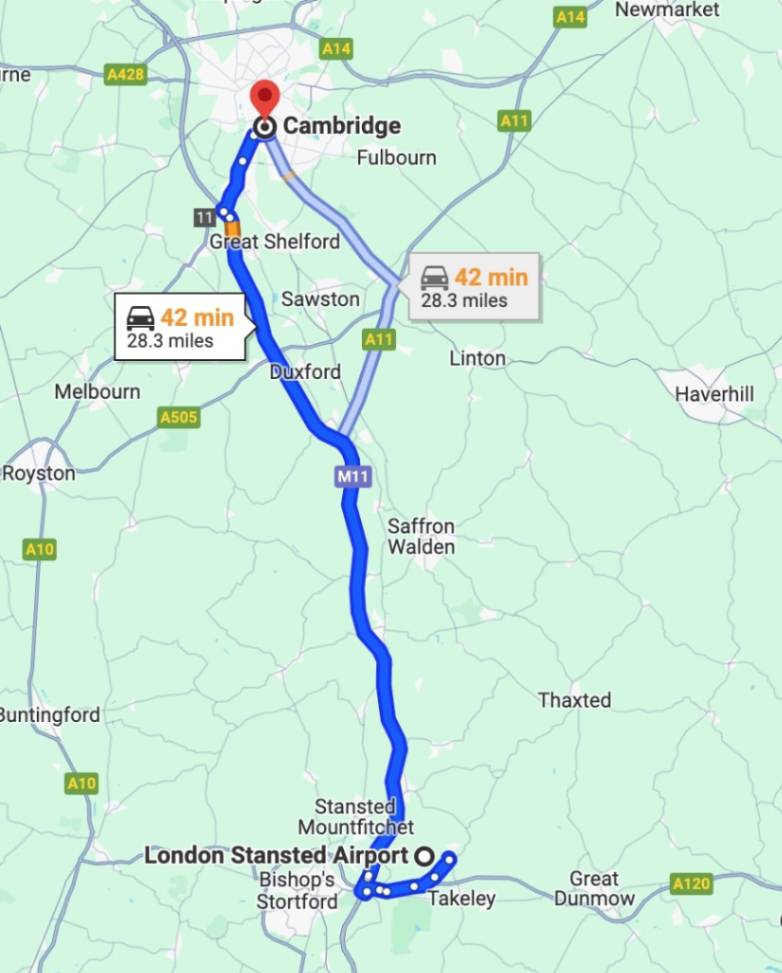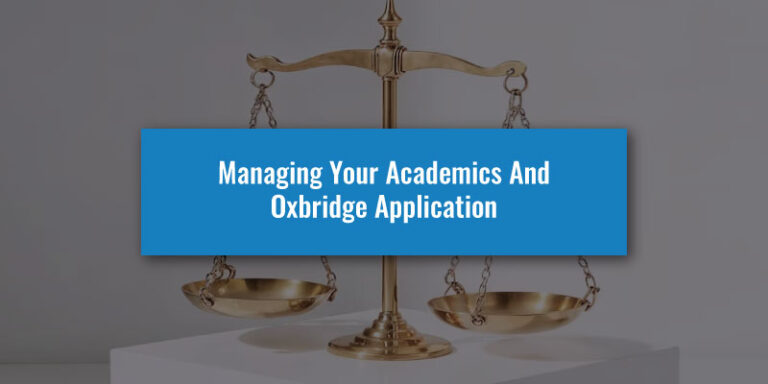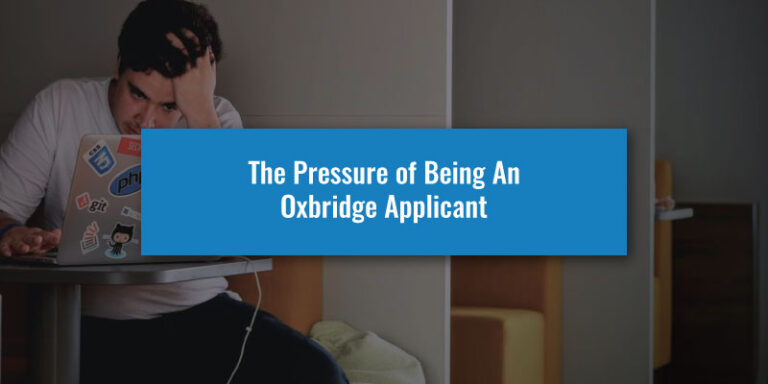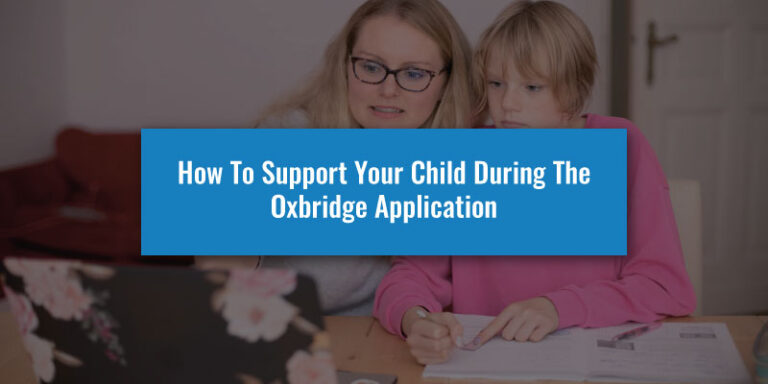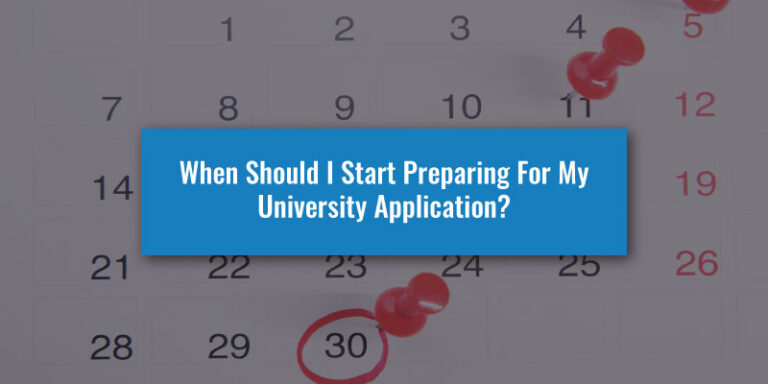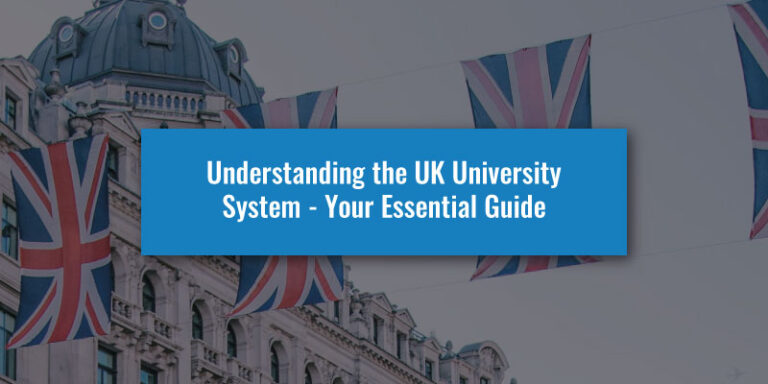
Applying to any UK university from China is challenging, but earning an offer to study at the University of Oxford or the University of Cambridge (together known as Oxbridge) requires one of the hardest applications in the world. Preparation is essential for this application no matter how skilled you are, but this process can be very difficult.
This guide is here to support you through each step of the process. We’ll do so by hearing from Cambridge student Mina, who came from Sichuan to the UK after being accepted to study Natural Sciences. With her knowledge of the process, you will leave this guide with a far greater understanding of what it takes to successfully earn your Oxbridge offer.

Mina
Cambridge Natural Sciences Student
Should You Apply To Oxbridge From China?
Firstly, you need to decide whether university is right for you. To help decide, there are several questions you could ask yourself:
- Does university seem right for me?
- What degree do I want to study?
- What career do I want?
- Where do I want to study? (Both university and country)
- How do I best learn?
- Am I capable of getting a place?
While these questions apply to any university applicant, additional considerations are necessary if you plan to study in the UK. Applying to any UK university is challenging, but applying to Oxbridge brings even more obstacles – along with many benefits.
Challenges of Applying To Oxbridge From China
Acceptance Rates
Oxbridge generally has some of the lowest acceptance rates in the world (Oxford – 13.9%, Cambridge – 16.6%). This is due to the size of the applicant pool (over 20,000 undergraduate applications each year) and the strength of many of the applicants.
For international applicants, these rates are even lower – just 7.6% for Oxford and 10.9% for Cambridge in 2023. While applicants from some countries perform better than others, most international applicants are at a statistical disadvantage compared to UK applicants.
In 2023, 2,282 Chinese nationals applied to study at Cambridge, the highest number of applicants of any non-UK country. 341 of these applicants earned their offer while just 262 were admitted, leading to an above-average acceptance rate of 11.5% overall.
Oxford doesn’t provide acceptances from specific countries outside the UK, but we do know that there were 6,691 applicants between 2021 and 2023, meaning it had roughly the same amount of applicants as Cambridge. Of these applicants, 538 applicants were admitted, so Chinese applicants had an 8% success rate during that period, much lower than Cambridge.
Admissions Process
The admissions process for Oxford and Cambridge is significantly more demanding than for most other UK universities, which can make it daunting or challenging to manage. In addition to the standard application form, you’ll need to complete extra admissions tests, attend interviews, and meet various smaller requirements, all while aiming for very high minimum grades.
Cultural Differences
China and the UK have many differences in their cultures, which can be difficult for some people to adjust to quickly. While some may be keen to explore new things and interact with different types of people, others may not be so keen to leave their comfort zones, making their university experience more isolated and stressful.
Also, consider that Oxbridge operates differently from other UK universities due to the centuries of traditions and language that have been built and maintained by the staff and students. Some of this will feel strange at first, and it is certainly not for everyone.
However, be aware that these feelings tend to pass, and you will soon find yourself making friends, either with other people from China that you have met or with your peers and college mates, who will likely come from very diverse backgrounds.
Fees
Another major problem for international Oxbridge applicants is the university fees, which have gotten more expensive over the last few years. At Oxford, annual fees range from around ¥276,060 (£30,050) to ¥446,660 (£48,620) per year. Cambridge charges between ¥236,400 (£25,734) to ¥617,300 (£67,194) per year.
Various scholarships and bursaries are available to applicants, such as the China Oxford Scholarship Fund and the CSC Cambridge Scholarship (though this is only available for postgraduate students). Be sure to search for any other options provided by the government or local organisations and businesses.
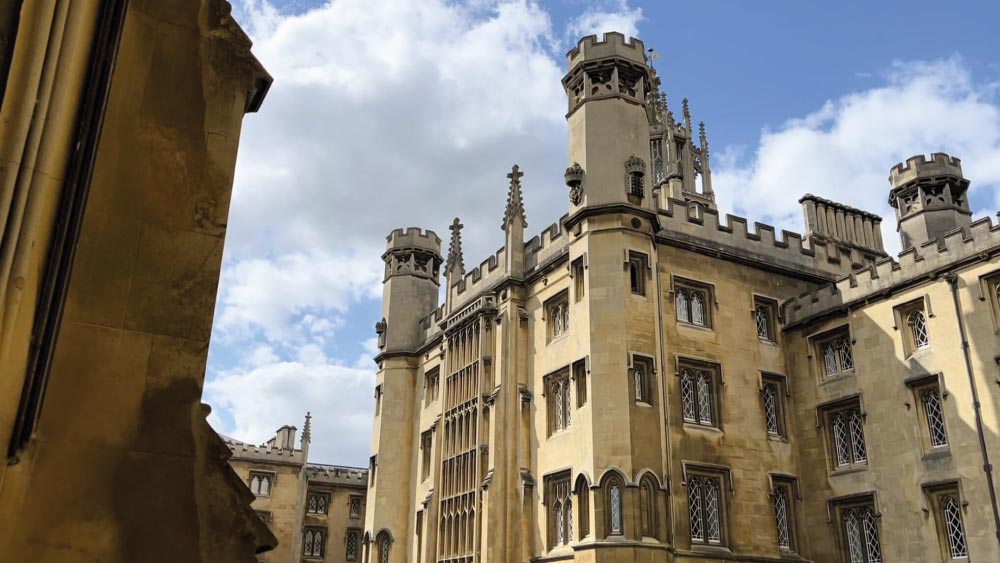
Benefits of Applying To Oxbridge
World-Class Teaching
One of the main reasons anyone outside the UK would consider applying to Oxford or Cambridge is their reputation as two of the world’s top universities. These two names are known by students and teachers across China, and studying at Oxbridge offers a truly unique experience that you won’t find anywhere else.
From the distinctive teaching style (centred on supervisions and tutorials) to the state-of-the-art facilities and access to industry experts and projects, there are many reasons why Oxford and Cambridge are regarded as the best universities in the UK. If you find the teaching approach appealing, you’ll be pleased to know that each university’s reputation is well-deserved and lives up to its legacy.
The Oxbridge Experience
As we mentioned, Oxbridge offers an experience unlike any other university in the world. This is not just about the teaching but about the lifestyle as well. Everything from the architecture to the social events is inspired by traditions founded hundreds of years ago.
Despite this, not everything about Oxbridge is old-fashioned, as there are still plenty of modern amenities and events to enjoy alongside the traditional aspects of the university lifestyle.
Graduate Prospects
No matter where you go in the world, being a graduate of Oxford or Cambridge is going to mean something to employers. Since these universities only teach the best of the best, graduating from either shows that you have the skills needed to do high-paying, respectable jobs.
Why Apply In The UK Over China?
China has some truly fantastic universities, including Tsinghua University and Peking University. However, there are also many reasons why you may want to study in the UK instead.
Whether it’s a desire to explore a new place, a lack of suitable options in China for your chosen subject, or the potential connections you can make at Oxbridge, your decision to choose Oxford or Cambridge should be driven by what you want from your university experience—not by pressure from others or the expectation to attend the top university.

You also need to consider if Oxbridge is right for you because it is not the best fit for everyone. We’ve seen how Oxbridge is different from other universities, although it can sometimes be hard to appreciate just how different it is from other universities in both China and the UK.
Many Oxbridge applicants enter the application with this mindset, not feeling too confident that they’ll be successful and just giving it a try. This is okay, but you need to ensure that you put the work into your application to stand the best chance of earning your offer.


We support Oxbridge applicants across the globe to get their Oxbridge offer
Our Full-Blue Programmes are suitable for anyone who is dedicated to getting their offer at Oxford of Cambridge, no matter where you’re from. Our students have access to everything they need to prepare for each stage of the admissions process.
This includes one-to-one tuition, hundreds of preparation materials, live courses, unlimited Personal Statement/essay marking and much more. Our support is suited to your needs to ensure you get the most of it.
Discover our Full-Blue Programme by clicking the button below to learn how you can enrol and triple your chances of success.
Getting Into Oxbridge From China - First Steps
If you have decided that Oxbridge is right for you, it is now time to begin your application. Firstly, you have several decisions to make, each of which will require some research, Some of the key things to consider are:
Choosing Your Subject
In the UK, you need to apply for a specific subject rather than a general university application. Therefore, you need to decide what you want to apply for and see if Oxford or Cambridge offer it.
Not every course is taught at Oxbridge (especially in the arts and highly specific degrees), but the ones that are available offer some of the best teaching and facilities in the world. All the major general subjects that you would expect to be taught would be available, so you’ll need to decide which one you want to apply for.
Depending on where you are in the process of choosing a subject, your approach will need to vary. Ideally, you already have a strong sense of what you want to study, which allows you to focus your research on course content and entry requirements.
If you have a general idea of your desired career path but are unsure what to study, start by researching which degrees can lead you in that direction. If Oxford or Cambridge offers one of these courses, then that’s what you should aim for.
However, if you’re unsure about what to study, you may need to consider whether Oxbridge is the right choice for you. Given the competitiveness of Oxbridge applications, it’s crucial for applicants to be fully motivated and deeply invested in their chosen course.
Successful applicants typically have been passionate about their subject for years, and it’s challenging to catch up in just a few months. While this doesn’t mean you can’t secure a place at another university, gaining admission to Oxbridge may be unlikely in this situation.

Oxford or Cambridge?
The decision between Oxford and Cambridge is a big one for many applicants. Although the two universities function similarly on the surface, there are many subtle differences that may impact your decision.
For example, many believe that Oxford is better for Humanities and Cambridge is better for STEM subjects. This isn’t exactly true, as both universities teach these two styles of degree very well, but there are arguments to be made that each university has a bigger focus on one side.
Part of this is backed up by two highly popular courses, PPE at Oxford and Natural Science at Cambridge, being exclusive to their respective universities (at Oxbridge). Check out our Oxford vs Cambridge guide to learn even more about how these two universities differ.
However, no applicant can apply for both Oxford and Cambridge in the same application cycle, so you will have to make this decision in order to apply.

Alternative Choices
You don’t just have to apply to Oxbridge. While there are limits to how many universities you can apply for, each applicant in the UK gets five choices. We would suggest using the other four options as there is no additional fees for doing so and they offer a good back up if you are not accepted into Oxford or Cambridge.
If you’re seeking other top-rated universities, consider the G5 Universities and Russell Group institutions. Keep in mind that these schools also have high admissions requirements, so it’s wise to include one or two options with lower requirements as a backup plan (just ensure they’re places you would genuinely want to attend).
Even if you are just applying in the UK for Oxbridge, it’s still worth reviewing the other options available. Remember, your chances of success are roughly 10% as a Chinese applicant, so your place at Oxbridge is far from guaranteed.
College Selection
In addition to choosing your universities and degree, you’ll also need to select a college within the university, a process unique to a few UK institutions.
Oxford and Cambridge each have over 30 colleges that operate within the university system. These colleges manage many aspects of university life that will affect your daily experience, such as accommodation, dining, social events, and certain elements of teaching, including Supervisions/Tutorials.
Colleges also manage their own admissions, meaning your application will be reviewed by admissions tutors at a specific college rather than the university as a whole. This is why you’ll need to choose a college when you apply. Each college has its own unique characteristics, some more subtle than others, so be sure to research your options thoroughly. Key points to consider include:
- Location
- Accommodation
- Subjects covered (not every college accepts applicants from every course)
- Values/Traditions
Your decision should be based on what you’re looking for out of a college, as strategic applications don’t tend to work in applicants’ favour. Neither university has any specific international colleges for students, so you’ll have a fairly equal chance of success at any college you apply to.

Don’t underestimate how important your college selection is. It will influence a good amount of your time at university so you need to make sure you choose a college that matches your personality and general lifestyle. Our guides to Oxford Colleges and Cambridge Colleges offer a perfect starting point for your own research.
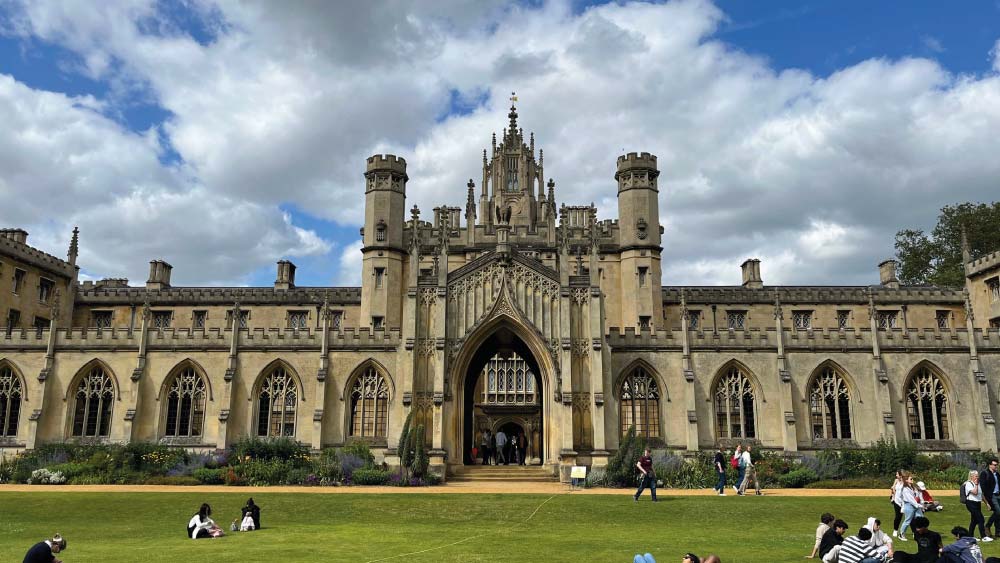
Application Support
One last thing to consider is what kind of application support you may need throughout the process. No matter how skilled you are, you will likely need some form of support, whether it be from school, peers, family or a professional service.
School Support
In addition to teaching the required curriculum for your exams, your school should also be prepared to support your university applications, both domestically and internationally. Depending on the school you attend, the faculty may only have experience with domestic applications. However, other schools offer extensive support options specific to Oxbridge applicants, especially if they get a lot of students going there.
Also, bear in mind that you need to complete alternative qualifications (as Oxbridge does not accept standard High School Diplomas), so you may not be attending a traditional school. If that’s the case, your access to this kind of support will be limited.

External Support
If you’re seeking support beyond your school, there are fortunately many options available. From free online guides to a variety of paid services, every aspect of the application process is covered. While free resources can be very useful, you’ll likely need to invest in more comprehensive support, including one-on-one guidance from Oxbridge experts.
For complete application support, it’s often best to find a provider that offers everything you need in a single package. This ensures you have access to all necessary resources in one place, avoiding conflicting advice from different sources. Additionally, you might need to decide whether to work with experts from the UK or China, as each offers distinct advantages to your preparation.
If you have connections to Oxbridge through friends or family, they can provide highly personalised support, although getting feedback from someone who doesn’t already know you can be more beneficial in many cases as it will be more objective and less biased.
That’s all the key things to consider before starting your application, so now let’s see what you need to do to get into Oxford or Cambridge.
Applying From China - UCAS Applications
Regardless of which university in the UK you’re applying to, you’ll need to submit your application through the University and Colleges Admissions Service (UCAS). UCAS is an organisation that has developed a centralised application system used by all UK universities, including Oxford and Cambridge.
The UCAS system operates online, so you’ll need to create an account via the UCAS Portal. Once your account is set up, you can enter your personal details, educational history, university choices, references, and Personal Statement. This information is submitted once, and once you confirm, it is sent to your chosen universities.
As a result, UK universities do not have separate application forms and you do not need to contact your chosen universities before submitting your application, although you can still reach out to them for questions and support if needed.
The UCAS system is well-established in the UK, but it comes with its own set of pros and cons:
UCAS Pros
- You only need to write out your personal details and education history once.
- It is a digital system, so you can make changes when needed until the submission deadline.
- The process is easy to complete anywhere in the world.
UCAS Cons
- You can not personalise your application for each university you apply for.
- You are limited to just five university applications per year.
- You need access to a computer/phone with a strong, stable internet connection to complete your application.
UCAS registrations will open in the middle of May and can be sent to your university choices starting from September. The regular UCAS application deadline is January 29th 2026, but all Oxbridge and Medicine applicants must submit their applications by October 15th 2025.
Completing a UCAS application costs ¥252 (£27.50), which covers all of the application services offered. In 2025, this fee will be rasied to ¥262 (£28.50).
The process for completing the application is very easy, though there are support options available if you have any difficulties with it.

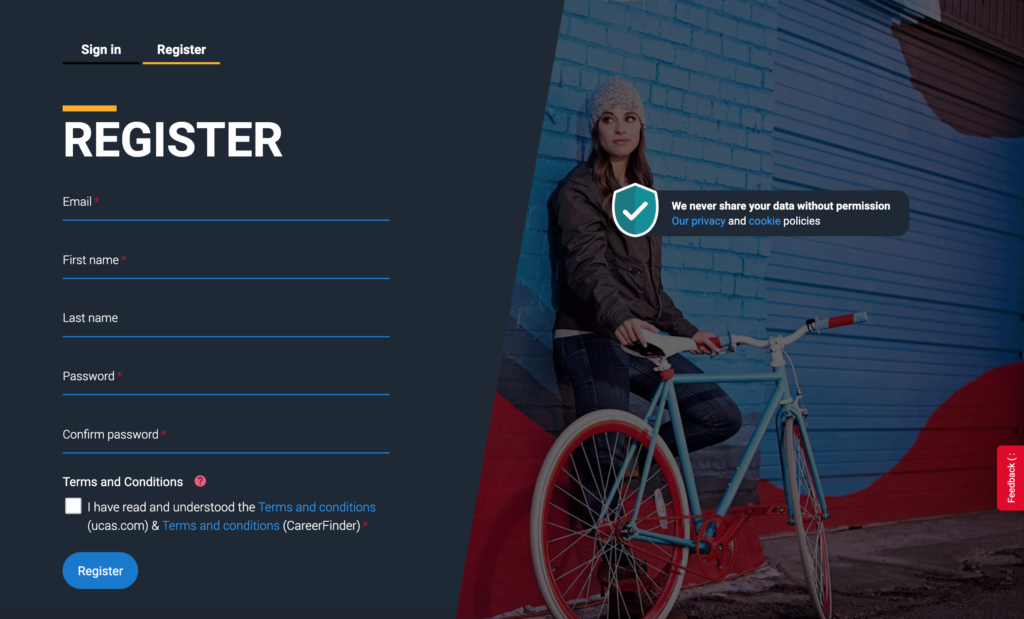
UCAS Reference
As stated earlier, your application will require an academic reference. This involves a teacher or faculty member answering three questions regarding your studies and capabilities.
It’s important to seek support from someone at your school who has experience with UCAS references. One of these questions will cover any special circumstances that might affect your application, so make sure to discuss with your referees any specific details you’d like them to mention.

Applying From China - Personal Statement
The Personal Statement is a part of the UCAS application, but it is incredibly important for most universities as they do not interview or give you any other chance to show off your abilities and personality. It is a written document that should convey why you should be admitted to the university.
It is submitted via your UCAS application, meaning it needs to be completed by October 15th, with the rest of the application. The UCAS portal provides a designated area for writing your Personal Statement, but we recommend drafting it using external software first, as these offer more versatile editing features.
- Why do you want to study this course or subject?
- How have your qualifications and studies helped you to prepare for this course or subject?
- What else have you done to prepare outside of education, and why are these experiences useful?
The statement can be up to 4,000 characters long, with each question having a minimum character count of 350. It’s important to use this space to only discuss topics that relate to the course/subject you’re applying for.
This is different from those required by universities in the US and other countries, as they need to be more focused on your academics and subject-related experiences rather than on your personality and life experience. While you can still write about this, it is important to link everything back to your subject and why you are interested in it.
Admissions tutors are primarily interested in understanding what you’ve learned from your experiences and how you’ve developed into a strong candidate. This involves self-reflection, so it’s important to research how to effectively communicate these aspects in your writing. Getting your drafts reviewed by a tutor or family member, especially someone with experience studying in the UK, can be incredibly valuable.
Don’t try to find shortcuts during the writing process, as the point of the statement is that it is personal to you. Both plagiarism and excessive AI-generated content are prohibited and are likely to be detected upon submission. If your Personal Statement is found to be inauthentic, it could jeopardise your entire application.
However, it’s a good idea to read and analyse some example Personal Statements from successful Oxbridge applicants. Doing so will help inspire your own work and teach you different writing styles that may be engaging. Our collection below covers a wide range of subjects from both universities (keep in mind that these statements were written in the previous format for UCAS Personal Statements and do not match the current structure):
Flawless English is not required for your Personal Statement to be accepted, the quality of the content is what matters most to admissions tutors. Nevertheless, you should ensure your English proficiency is strong before applying to Oxbridge, as you will need a high level of language skills to manage your studies effectively (we’ll discuss the specific English test required later). Learn more about the UCAS Personal Statement in our Ultimate Guide.

Although Personal Statements are a key component of your UCAS application, keep in mind that Oxford and Cambridge do not prioritise them as heavily in their decision-making process. This is because they use other methods to assess a candidate’s potential, which they consider more significant. Nevertheless, it’s still important to put effort into your Personal Statement as it will be reviewed by all of your chosen universities.
Access "The Big Book Of Oxbridge Applications" For FREE
If you want to get into Oxford or Cambridge from Hong Kong, you need to be prepared for everything required of you. Download The Big Book Of Oxbridge Applications for free now to learn about the entire process through over 350 pages, where you’ll find:
- Over 40 admissions test practice questions
- 28 example Oxbridge Personal Statements
- Interviews with Oxbridge students and graduates
- Additional downloadable resources
Fill in your details below to claim your digital copy today!
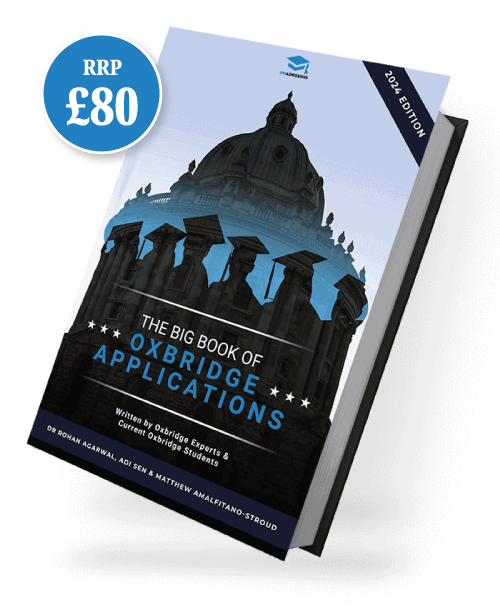
Getting Into Oxbridge From China - Oxbridge Admissions Tests
After the UCAS application, there are additional application requirements for Oxford and Cambridge which they handle outside of the UCAS system. Firstly are the admissions tests, which tests applicants on their academic potential in a more specialised manner than their grades. At Oxford and Cambridge, there are many different admissions tests, including:
Oxford Admissions Tests
- Mathematics Admissions Test (MAT): Required for Mathematics and Computer Science (and joint courses)
- Physics Admissions Test (PAT): Required for Physics, Engineering and Material Sciences
- Thinking Skills Assessment (TSA): Required for PPE, Economics & Management, PPL and more
- Biomedical Sciences Admissions Test (BMSAT): Required for Biomedical Sciences
- Ancient History and Classical Archaeology Admissions Test (AHCAAT): Required for Classical Archaeology and Ancient History
- History Admissions Test (HAT): Required for History (and course variants)
- Modern Languages Admissions Test (MLAT): Required for Modern Languages and European & Middle Eastern Languages (and joint courses)
- Classics Admissions Test (CAT): Required for Classics (and joint courses)
- Philosophy Test (PhilAT): Required for Philosophy & Theology
Cambridge Admissions Tests
- Engineering and Science Admissions Test (ESAT): Required for Natural Sciences, Engineering, Veterinary Medicine and Chemical Engineering & Biotechnology
- Test of Mathematics for University Admissions (TMUA): Required for Computer Science and Economics
- History Admissions Assessment (HAA): Required for History (and course variants)
- Modern and Medieval Languages Admissions Assessment (MMLAA): Required for Modern & Medieval Languages and Asian & Middle Eastern Studies (and joint courses)
- English Admissions Assessment (EAA): Required for English
- Classics Admissions Assessment (CAA): Required for Classics
- Linguistics Admissions Assessment (LAA): Required for Linguistics (and joint courses)
- Philosophy Admissions Assessment (PAA); Required for Philosophy (and joint courses)
Oxford & Cambridge Admissions Tests
What Are The Oxbridge Admissions Tests?
Oxbridge admissions tests are designed to meet the specific needs of admissions tutors, so their format and content can vary depending on the subject. While many tests consist of multiple-choice questions, some may also include essay writing tasks and longer mathematics problems. The content of these tests can range from general thinking skills to subject-specific knowledge, so it’s important to review the specifications for your particular test if available.
How Do I Register For My Admissions Test?
Most admissions tests at Oxbridge are run by Pearson VUE, which specialises in computer-based testing. This means that all of these tests are digital and have to be taken at a registered Pearson VUE testing centre. In China, there are various different testing centres available in each province, so you will likely not have to travel too far to attend your testing slot.
Registering for your admissions test must be done via one of Pearson VUE’s dedicated online portals (there are several for different admissions tests) You can find the relevant portal for your exam on its official webpage. Admissions tests can cost up to ¥1,194 (£130) to sit, though most Oxford admissions tests are free to sit.

If you are applying to certain courses or at certain colleges at Cambridge, you will have to sit your admissions test directly before your interview. These are not handled by Person VUE, so you will receive instructions from Cambridge directly. The tests are sat at home and do not require a fee.

What Score Do I Need On My Admissions Test?
Oxford and Cambridge don’t set threshold scores for any of their admissions tests, so your application will be considered regardless of how you do. However, due to the competitive nature of these courses and the general standards expected, you will need to achieve an above-average score at minimum to have a chance at being interviewed. Ideally, you should be scoring in at least the top 30% of applicants to have a safe chance of getting an interview.
Preparing For Your Admissions Test
To prepare effectively for your admissions test, it is best to start at least 6 weeks in advance, though several months is ideal. Since people have different learning styles, tailor your preparation plan to what works best for you. Regardless of your approach, thorough preparation is crucial for optimal performance on the day.
Generally, the most effective way to prepare is through regular practice. This involves working through practice questions to refine your exam technique. Practice not only helps you improve accuracy but also prepares you to handle exam conditions, making timed mock exams a valuable tool for assessing your skills and identifying areas for improvement.
If your admissions test requires substantial subject knowledge, such as the PAT or ESAT, revision is also vital. Understanding the theoretical background will help you quickly grasp questions and avoid getting stuck on knowledge-based queries. Using textbooks, live courses specific to your test, and guided one-to-one tuition can provide targeted preparation for the material you will need to know.

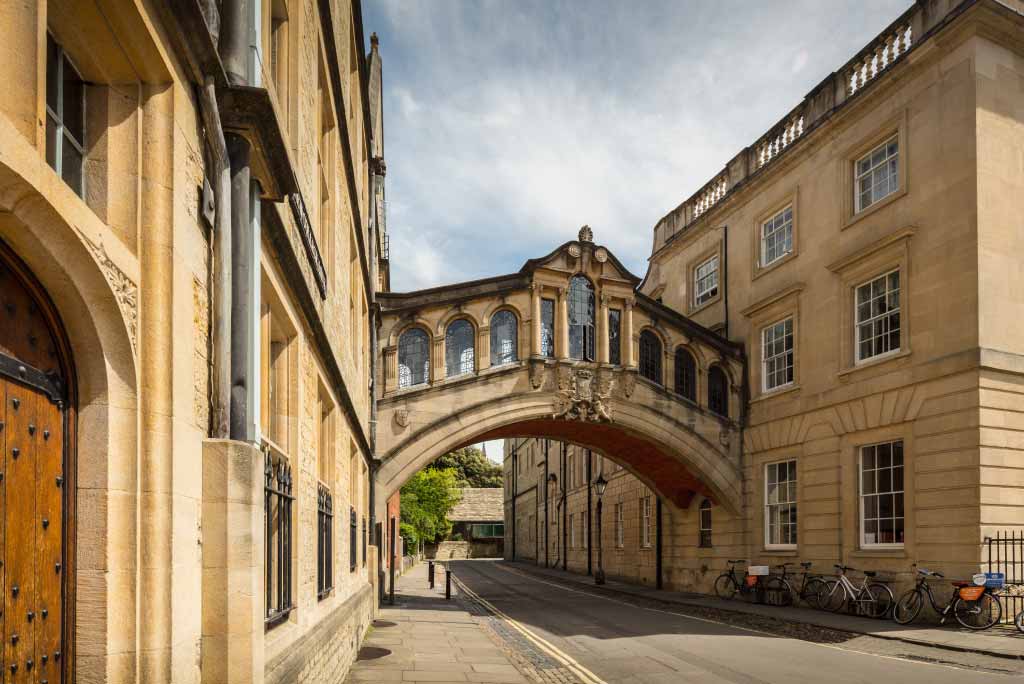
English Language Proficiency Tests For Oxbridge
In most cases, Chinese applicants will need to complete an English Language Proficiency test to apply to any university in the UK. You don’t need to do this before you submit your application as your results can be sent any time before July (of the year you are due to start. You can also submit results from as far as two years back, though be sure to check your results are valid.
Oxford and Cambridge accept multiple different tests, with the most popular being the International English Language Testing System (IELTS). These tests require applicants to complete exercises for English reading, writing, listening and speaking, testing their proficiency in each key aspect of the language.
To be considered, you must meet a minimum score requirement, which varies by university. For instance, both Oxford and Cambridge require a score of 7.5 on the IELTS, with no component below 7.0. We delve into these tests in more detail in our English Language Proficiency Testing guide, so be sure to have a look


Additional Oxbridge Requirements
As well as the admissions tests, there are two additional things that you may be required to complete.
Written Work
In some cases, Oxbridge courses may require applicants to submit written work rather than sit an admissions test. Some will require you to do both. This normally involves submitting an English written piece that has been marked by teachers, though other kinds of work are sometimes requested.
Be sure to check the entry requirements for your course to learn if you need to submit written work or not. If you do, the submission deadline will usually be in November.
The system for submission is digital, which means any handwritten pieces need to be scanned into your computer to be submitted. You can learn more about written work, including which courses require it, in our Oxbridge Written Work Guide.
My Cambridge Application
If you are applying to Cambridge, you need to complete the My Cambridge Application form online. This is an additional form similar to the UCAS form which requires personal details, education history and a small Personal Statement exclusively for Cambridge.
The unique Personal Statement is sent directly to your college and offers you the chance to write a dedicated statement about why you should be admitted into Cambridge. You only have 1,000 characters, so you’ll need to plan carefully to ensure you include only the most important details.
The MyCApp requires a fee of ¥551 (£60) for any applicants not based in the UK or Ireland. The form needs to be submitted by October 22nd 2025 at the latest. Though this process is easy, it is important that the information you provide matches what you wrote in the UCAS application.

Triple your chances of Oxbridge Success with support from UniAdmissions
At UniAdmissions, we are specialists in getting applicants from across the globe into Oxbridge, UK Medicine and more. With our expertly crafted curriculum, extensive preparation materials and innovative Portal, we have developed programmes that cater to applicants of over 30 subjects across Oxford, Cambridge and more.
Discover our Full-Blue Programmes by clicking the button below to learn how you can enrol and triple your chances of success.
Getting Into Oxbridge From China - Interviews
Interviews are the final major step of your Oxbridge application. They take place in the first three weeks of December each year and are usually held remotely for international applicants. Depending on your course, you should expect to attend 1 – 4 interviews during this period, though 2 -3 interviews are the most common.
Interview invitations are sent by email roughly two or three weeks before via email. They are offered based on a shortlisting process that primarily considers admission test scores and predicted grades, with some regard for Personal Statements and references. Oxford interviews about 40% of its applicants, while Cambridge interviews a higher percentage, approximately 70%.
Oxbridge interviews follow a traditional panel format, where two to three faculty members from the college will ask questions, present problems to solve, and engage in discussions with you. Typically, applicants can expect to participate in one to four interviews, each lasting about 35 to 40 minutes, as part of the standard application process.
As stated, most interviews are held remotely, so you won’t need to travel to the university. Oxford are all remote currently, but certain Cambridge colleges do ask candidates to interview on-site. Of these, some give those not in the UK the choice between an in-person or remote interview, but Emmanuel and King’s College require all applicants to attend in person, except in exceptional circumstances.
Timings are scheduled to fit your time zone, so you can generally expect to have your interviews scheduled in the afternoon. Oxford conducts interviews via Microsoft Teams, while Cambridge uses Zoom. Some interviews may require you to use a virtual whiteboard, so make sure you’re familiar with this tool.
To prepare effectively for your interview, focus on practice and research. Start by understanding the expectations of an Oxbridge interview and how to present yourself appropriately. Reading about the experiences of other Oxbridge students can provide valuable insights.
Once you have a grasp on what to expect, prioritise practising extensively, particularly through realistic mock interviews. It is most beneficial to conduct these mock interviews at school or with a professional service, as practising with friends or family may not replicate the formal atmosphere and pressure of the actual interview.
Some interviews will have a greater focus on academic questions and subject-relevant problems, while others will involve more general questions and questions designed to test your thinking. Be sure to research common questions at Oxbridge for your specific subject and, where possible, your college.

On the day of the interview, it’s crucial to have a quiet, well-lit location with a stable internet connection. Ensure you have a good-quality microphone and camera for effective communication with your interviewers. Additionally, make sure you have the necessary software installed to join the virtual meeting room. If you don’t have access to such a space, ask your school to provide one.
Most importantly, you need to be mentally prepared for the interview, so try to keep calm beforehand. Being nervous is natural as it’s a very stressful time, but avoid panicking as this could cause you to freeze and make mistakes easier. As for what to wear, it doesn’t need to be anything too formal as long as it is comfortable.

If your chosen college doesn’t want to give you an offer, you might be invited to interviews at different colleges in January. This process, known as the Winter Pool at Cambridge, indicates that the university is still interested in finding a place for you. These interviews are similar to the initial ones, although each college may have slightly different approaches.
The interviews are the last major step of the application process, so now you will need to wait for your offer to come in. Thankfully, you will not have to wait too long!
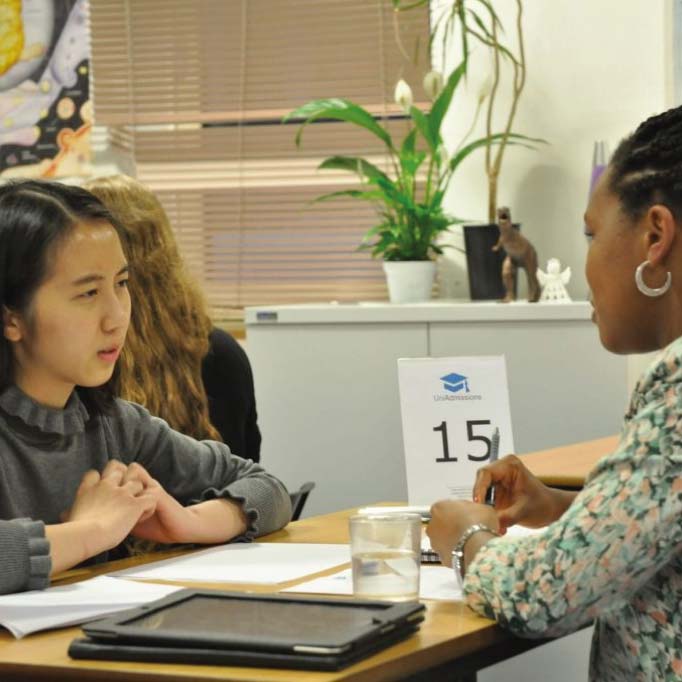
Getting Into Oxbridge From China - Your Offer And Beyond
Oxford and Cambridge colleges send out their offers in late January via email (though a letter is also be sent afterwards). Your offer will confirm the details of your application, including the grade requirement for you to meet to be admitted.
Oxbridge expects applicants to accept their offer within a few days of receiving it. You will need to do this through your UCAS Portal, where you can choose to accept the offer as your primary choice, your insurance choice, or reject it. Typically, if you don’t accept the offer as your main choice by the specified deadline, it will be withdrawn.
Along with your university offer, you’ll receive a confirmation from your college detailing a few tasks that need to be completed. The specific process varies between Oxford and Cambridge and will be outlined in your offer letter.

Receiving your offer is an incredibly exciting moment, but if you don’t get an offer, it’s understandable to feel disappointed. Remember, it’s not the end of the road. If you’ve applied to other UK universities, you still have up to four more opportunities to secure a place. And if that doesn’t work out, you can always try again in the next admissions cycle.
Even after receiving an offer, your work is not complete. You’ll need to meet the grade requirements, fulfil any outstanding conditions, and start planning your move to the UK.
Completing Your Exams
Unfortunately, Oxford and Cambridge do not view standard High School Diplomas as satisfactory qualifications for admissions, so you will need to complete an additional or alternative qualification to be admitted. These can include an International Baccalaureate, College Board Advanced Placement Tests or International A-Levels like Mina did.
Oxford Entry Requirements - China
Gaokao: Not Accepted
A-Levels: AAA – A*A*A
International Baccalaureate: 38 – 40 (with 766 or 776 in Higher Level)
Cambridge Entry Requirements - China
Gaokao: Accepted but only considered competitive alongside other qualifications (AP Test, science olympiad). Applicants being awarded an offer based on the Gaokao will need to rank within the top 0.1% of students.
A-Levels: A*AA – A*A*A
International Baccalaureate: 40 – 42 (with 776 in Higher Level)
While you should have been preparing for these throughout the entire application process, the time after interviews is when you should fully focus on revision to ensure you can meet your grade requirements. Depending on what qualification you are completing, you may need to complete your exams very soon after receiving your offer or you may have several months to prepare.
Depending on which qualification you completed and when you sat your exams, your results will come as early as March, so you may not have long to wait to find out if you got your place at Oxbridge. However, once you’ve got the results in your hand and you know if you’ve secured your place, a huge pressure will be taken off of you.

While securing your place is exciting, it’s also important to think about your options if you don’t achieve the grades you need. Depending on your circumstances, you might still have other offers to consider, either from institutions in the UK or from home.
If those options don’t work out, you might consider applying through UCAS Clearing. This process offers a second chance for applicants who didn’t receive an offer or didn’t meet their expected grades. Although Oxford and Cambridge don’t participate in Clearing, it provides an opportunity to find a place at another UK university if you’re eager to study in the UK this year.
If none of these options are suitable, you could reapply in the next cycle or explore alternative paths such as apprenticeships or entry-level jobs.
Now that you have secured your place, congratulations! The next step is to prepare for your new life in the UK.

Leaving China For Oxbridge
Moving to a new country and preparing to study at one of the world’s most demanding universities can be overwhelming. To help you get ready for your studies starting in September, here are some key things you’ll need to consider and prepare for.

Visas
Firstly, you will need to ensure you have the correct student visa so that you can legally enter and remain in the UK for the duration of your course. You’ll need to apply for a Tier 4 (General) student visa, which is available to anyone over the age of 16 who meets all the requirements.
With this visa, you can enter the UK up to one month before your course starts, meaning you’ll be able to move between late August and late September.
Requirements for the visa include a confirmed place at a university, a high level of English proficiency and evidence of your accommodation/financial capability. You’ll also need to attain various documents, including a passport, evidence of funding, confirmation of Acceptance for Studies (CAS) and assessment documentation.
You will also need to demonstrate that you and your family have the financial capacity to pay for your tuition and living expenses while in the UK or show proof that you have received a full scholarship.
Lastly, you will need to complete a Tuberculosis screening. If any documents aren’t already in English, you will need to pay to have them translated.
Medical Requirements
As mentioned, you will be required to complete a tuberculosis screening to be admitted. You may also wish to seek out medical insurance for your time in the UK, as well as receive a meningitis vaccine, as students are at high risk of catching this disease.
Scholarships
If your financial situation might prevent you from studying at Oxbridge, you may want to explore scholarship opportunities. There are numerous options available through the universities themselves, private organisations, and government programs. These will need to be applied for before you can acquire your visa.
Travel Arrangements
To get into Oxford or Cambridge, you’ll need to book flights to arrive in the country. You should be able to get to the UK from most international airports in China, though you will ideally be flying to either London Heathrow for Oxford or London Stansted for Cambridge, as these are the closest international airports.
Upon arriving at the airport, you can choose between a taxi or coach to reach the city. The trip from Heathrow to Oxford typically takes about 1 hour and 30 minutes, whereas the journey from Stansted to Cambridge is much shorter – approximately 30 minutes.
Packing
You will need to decide what to bring with you, but we suggest not bringing too much as most things can be bought when you arrive in the UK. This includes kitchenware, bathroom accessories, bedding and other larger items. You will only need to pack clothing, certain study materials and any other personal items that cannot be purchased in the UK.
Be sure that anything you bring with you meets the regulations for air travel in both the UK and China.
Saying Goodbye
If you have lived at home all your life, leaving to live in a new country may be hard for both you and your loved ones. While you are not leaving permanently, trips home will be infrequent due to the time and cost of travelling between the two countries.
During your last few weeks at home, be sure to visit those care about to say goodbye and reassure them about any concerns they have. If possible, try to build up your independence before you leave by taking trips by yourself. That way, you will feel less shocked when you begin living by yourself.
Most importantly, remember that this isn’t permanent. You will have opportunities to visit home during the winter and summer breaks and you can stay in touch with loved ones via video calls at your convenience, though remember to consider time zone differences to avoid calling in the middle of the night in China!


Adjusting To The UK
After all the hard work you put in, you are now at Oxford or Cambridge and are ready to start your life at university. However, living in the UK is a very different experience from China, so it may be overwhelming at first to understand what everyone is doing.

It’s natural to feel lonely or homesick, but there are things you can do to help ease yourself into your new life in the UK.
Join Societies
Oxford and Cambridge offer a wide variety of societies and sports teams for students, including the dedicated societies for Chinese students at each university. We recommend joining at least one, so explore the available options, including those related to your subject and other interests you may have.
Join in College Activities
You might be hesitant, but participating in college-run activities can help you acclimate to your new environment and meet new people. One key event for new students is Freshers Week, which typically occurs just before classes start.
Freshers Week features a range of activities, events, and parties designed to welcome you to the university. There are also specific events for international students, offering a great opportunity to connect with others who are experiencing similar feelings.
Explore
You don’t need to take part in activities or parties to get out of your room. Oxford and Cambridge are both beautiful cities, so it is nice to go outside and explore your local area. You will likely find lots of interesting shops and venues, and maybe even meet some new people. Plus, you will be getting fresh air and exercise, which is always good!
Don’t Stress About Work
During your first weeks in the UK, you may feel inclined to jump straight into your studies. While there will be some tasks to complete, you won’t be overwhelmed with work just yet, so avoid stressing yourself out by diving in too early. Use this time to enjoy yourself, as soon you’ll find yourself with a significant workload
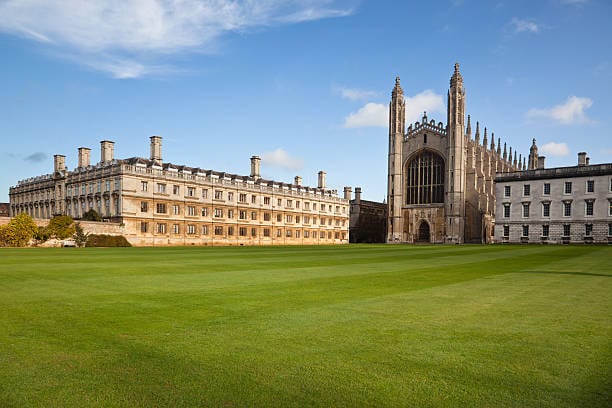
That covers the essential information you need to know about applying to Oxford or Cambridge from China. This guide is only the start of the information you should be aware of when applying to Oxbridge, so explore our library of Oxbridge application guides to learn even more. To finish, here are some closing thoughts from Mina:

We hope this guide has been helpful to you, and we wish you the very best of luck with your application. If you want to discover how we can drastically improve your chances of getting your offer, please visit our Full-Blue Programmes page and discover our truly effective support.
We support Oxbridge applicants from all over the world to get their Oxbridge offer
Our Full-Blue Programmes are suitable for anyone who is dedicated to getting their offer at Oxford of Cambridge, no matter where you’re from. Our students have access to everything they need to prepare for each stage of the admissions process.
This includes one-to-one tuition, hundreds of preparation materials, live courses, unlimited Personal Statement/essay marking and much more. Our support is suited to your needs to ensure you get the most of it.
Discover our Full-Blue Programme by clicking the button below to learn how you can enrol and triple your chances of success.

